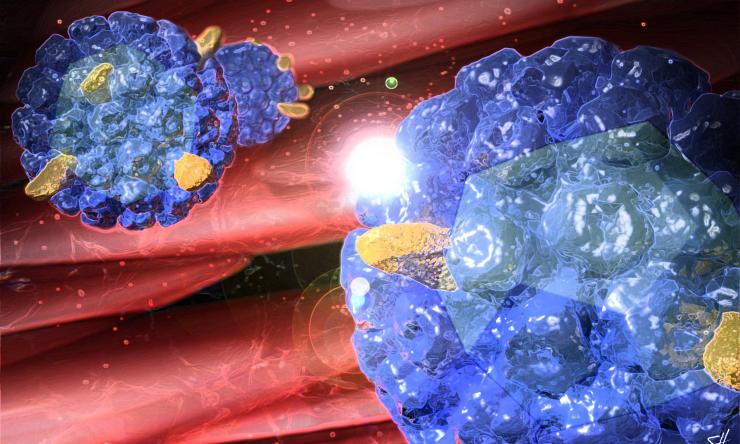Researchers Awarded CPRIT Grant to Study Immunotherapy
March 13, 2019
Qizhi Cathy Yao, M.D., Ph.D., professor in the Department of Surgery, and of Molecular Virology & Microbiology, Pathology & Immunology, and Pharmacology at Baylor College of Medicine, has received a CPRIT (Cancer Prevention & Research Institute of Texas) grant for research titled, “Lymphatic delivery of checkpoint blockade inhibitors for more effective immunotherapy.”
The grant is in collaboration with Dr. Eva M. Sevick, Ph.D., professor and Nancy and Rich Kinder Distinguished Chair of Cardiovascular Disease Research and director of Molecular Imaging at The University of Texas Health Science Center’s Institute of Molecular Medicine. CPRIT provides funding for innovative research projects addressing critically questions that will significantly advance knowledge of the causes, prevention, and/or treatment of cancer.
The primary goal of the study is to determine the immunotherapeutic efficacy by chimeric tumor-specific antigen-incorporated Virus-like particles (VLPs) vaccine plus immune checkpoint blockade (ICB) lymphatic delivery in preclinical animal models and in clinical trials in melanoma patients.
Since systemic administration of ICB has limited drug delivery to the tumor-draining lymphoid targets, higher doses are needed to achieve the optimal therapeutic effect via systemic administration. Severe immune-related adverse events (irAEes) are commonly associated with ICB treatment
In this study, they plan to administrate chimeric tumor-antigen specific VLPs and ICB directly through the tumor-draining LNs. which could result in increased exposure to drug targets in lymphoid tissues presenting with tumor-antigen and reducing irAEes when compared to systemic administration.

Dr. Yao received her M.D. from Southeast University School of Medicine in China and her Ph.D. from Emory University in 1996. She was one of the first researchers to work on developing chimeric virus-like particles for an HIV mucosal vaccine. Her pioneering work has also focused on exploring pancreatic cancer-associated tumor antigens, specifically mesothelin (MSLN), microRNA-198 and Trop2.
Dr. Yao has concentrated on studying the molecular mechanisms of these molecules with regards to pancreatic cancer pathogenesis and metastasis while developing chimeric tumor-specific antigen-incorporated virus-like particles (VLPs) vaccines for cancer immunotherapy. Her research interests also include nanoparticle specific targeting therapy and the development of a novel pancreatic cancer combinational therapy.
Dr. Yao is a principle investigator on several large ongoing NIH grants, a VA Merit Award grant, a Rice-BCM Engineering Solutions in Surgery Seed Award, and CPRIT PDX core pancreatic cancer developmental seed awards. She has published over 250 papers, which have appeared in high impact scientific journals.
In 2018, Dr. Yao was a recipient of the Norton Rose Fulbright Faculty Excellence Award for Teaching & Evaluation at Baylor College of Medicine. In 2015, she won the inaugural Barry Stephen Smith Memorial Pancreatic Cancer Research Award, and she received Molecular Surgeon Research Achievement Awards (2003-2009). Dr. Yao has served on many NIH grant review study sections and holds memberships in six national associations related to the fields of Surgery, Immunology, Cancer Research, and Virology.







 Credit
Credit



